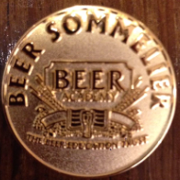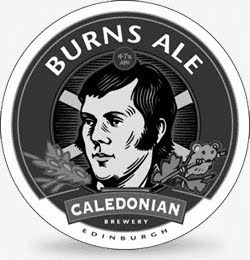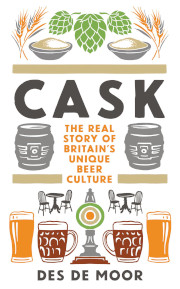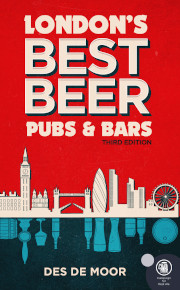ABV: 4.7%
Origin: Edinburgh, Scotland
Website: www.caledonianbeer.com
First published: 5 February 2001
Another review from the archive written for the pioneering Oxford Bottled Beer Database (OBBD). I’ve left it uncorrected — so please read it in that historical spirit. Caledonian is no longer “proudly independent”: Scottish Courage became involved in 2004 and by 2008 the business was wholly owned by Heineken. Burns Ale remained as a seasonal for a few years after this review but hasn’t appeared since the ScotCo takeover.
I’m not one for celebrations but Caledonian brews are always worth trying, and these were piled high at Sainsbury’s supermarket in anticipation of Burns Night, so I succumbed and bought one to mark the occassion.
This historic Edinburgh brewery uses the only direct fired open coppers left in Britain; it was formerly owned by now-defunct northeast England brewer Vaux but has been proudly independent since a management buyout in 1987 [but see above], developing a range of well-made ales based on traditional Scottish models but with a flair for innovation and a faintly caramelly house character from the brewing method.
Burns Ale, brewed annually for January release, was bottle conditioned when launched in 1999 but now, like
most of their bottled beers, it appears to be pasteurised: it’s a shame they don’t bottle condition more often. The connection between this beer and the poet after whom it was named is obscure, unless Burns had anything particularly to do with rye, since this distinctive grain is present in both pale and crystal malt forms; another point of interest about the recipe is that this is a ‘single varietal’ hop beer, only hopped with English Goldings.
The beer is golden, with a sweetly malty, strawberry sherbert and slightly vinegary nose. It has a full malt palate, with a crisp ‘Shreddies’ character and some aromatic rye in the background. The hops are well-balanced, bringing raisins and orange to a dry finish, with more hop bitterness than many Scottish beers.
Overall, the beer is fine, but despite the claims to malty depth on the label, it’s rather lacking in complexity and development. Nice way to raise a toast to ‘Rabbie’, though.






Leave a Reply